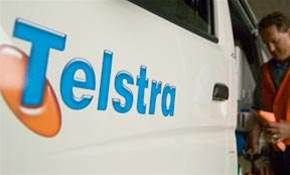
The Federal Government has moved to allay fears a proposed watchdog overseeing Telstra’s structural separation might favour the incumbent telco.
The Independent Telecommunications Adjudicator (ITA), first proposed by Telstra itself in 2009, was earmarked as a new body separate to the Australian Competition and Consumer Commission (ACCC) that would help to resolve concerns arising from the separation of the telco’s wholesale arm and retail customers over non-price equivalence and service level concerns.
"It is expected that the adjudicator will enable Telstra and its wholesale customers to resolve non-price equivalence and service level concerns," a spokesperson for Senator Conroy told iTnews.
The body’s establishment was cemented in final legislative instruments released late Friday by communications minister Senator Stephen Conroy, making provisions around the ITA a mandatory part of Telstra’s undertaking to the competition watchdog.
The instruments also served to settle concerns from Telstra’s competitors that the ITA would remain independent of the telco.
Changes to provisions around the ITA came as challenger service providers called into question the body’s independence.
iiNet chief regulatory officer Steve Dalby told iTnews the idea of such a body without greater detail was "bizarre".
In separate and joint submissions on the draft instruments, Optus, Vodafone Hutchison Australia and industry body the Competitive Carriers' Coalition (CCC) had argued in favour of the adjudicator - supporting its mandatory establishment - but asked that the body not be appointed or managed by Telstra. Competitors also wanted checks and balances to ensure there would be no "gaming of the system".
"To ensure that the ITA's oversight role is effective, Telstra must agree to allow the ITA full access to its records, systems and personnel in order to rapidly and effectively investigate complaints and agree to be bound by any orders made by the ITA," Optus and the CCC wrote in similarly worded submissions.
The competitors also argued that the body should be funded by government, with members appointed by the Minister, with current or recent past employees of Telstra banned from employment.
Most of those concerns were met in the final instruments on Friday, which amended ITA provisions to ensure the chosen representative first required approval by the ACCC in consultation with wholesale customers. The board of the ITA would also be bound by a charter of independence from Telstra, with direct reporting lines to the ACCC for most matters.
The amendments would serve as solace to ISPs that expect the new body would serve to resolve any issues experienced during the incumbent telco’s structural separation, a body that would not “tolerate delays”.Telstra had first proposed a separate adjudicator to the ACCC in 2009 alongside the government's proposal for the current National Broadband Network, at the time arguing the body could avoid the need for a functional separation but would complement any structural separation procedures.
Legislative elements allowing for the adjudicator were also secured under the Competition and Consumer Act 2010 passed last year, allowing the ACCC to provide the adjudicator confidential information, advice and both staff and facilities where necessary.
Both Telstra and the Federal Government have cited previous success with such a body in the United Kingdom which has similarly looked to resolve disputes around the functional separation of British Telecom into its BT retail and OpenReach wholesale arms.
The British adjudicator worked with 15 member organisations - half of the number of service providers involved - to resolve potential issues with unbundling of a total 7.2 million local loop lines between 2004 and 2009 during separation.
Structural separation or nada
Telstra chief executive David Thodey this week reaffirmed the telco's long-held opposition to functional separation, leading many to criticise the lack of arms-length provisions preventing the telco's retail and wholesale arms from collaborating post-structural separation.
"[In 2009] we faced a choice of either functional or structural separation, but not both," he told media and analysts following the finalisation of Telstra's $11 billion with NBN Co and the Federal Government, which pre-empts negotiations with the ACCC.
Under the separation instruments, the incumbent telco's wholesale and retail arms would be separated by 1 July 2018, by which time it is expected the company would have decommissioned its copper network in all fibre serving areas under the National Broadband Network per the $11 billion agreement.


_(20).jpg&h=140&w=231&c=1&s=0)


.png&h=140&w=231&c=1&s=0)





 iTnews Benchmark Awards 2026
iTnews Benchmark Awards 2026
 iTnews Executive Retreat - Security Leaders Edition
iTnews Executive Retreat - Security Leaders Edition
 iTnews Cloud Covered Breakfast Summit
iTnews Cloud Covered Breakfast Summit
 The 2026 iAwards
The 2026 iAwards












_(1).jpg&h=140&w=231&c=1&s=0)



